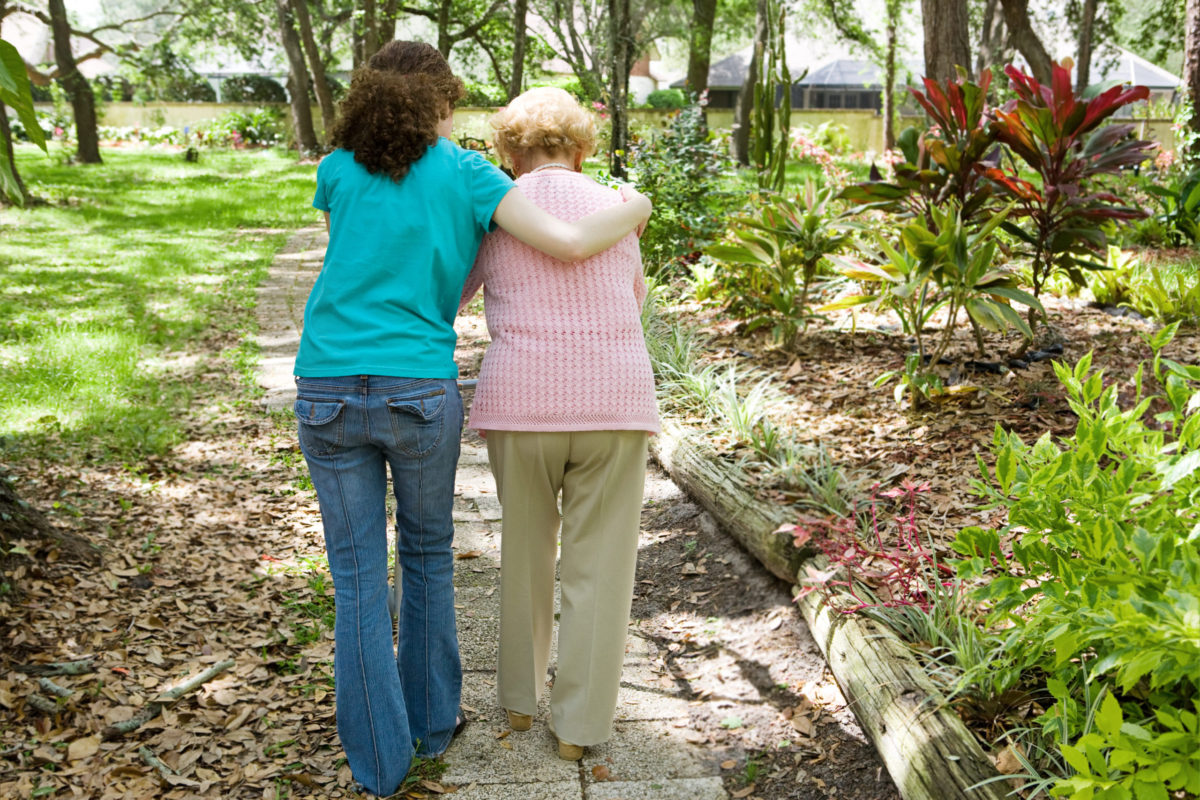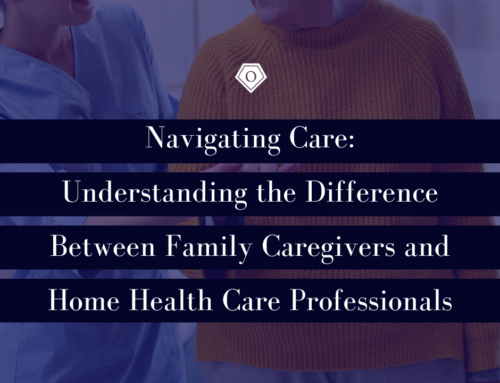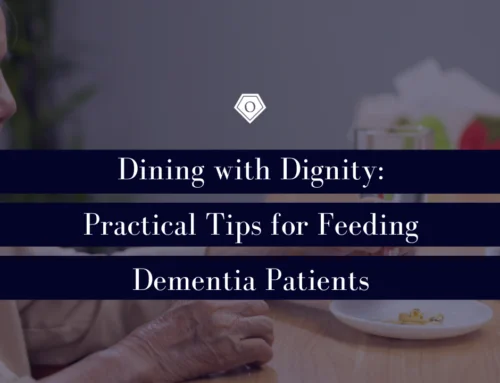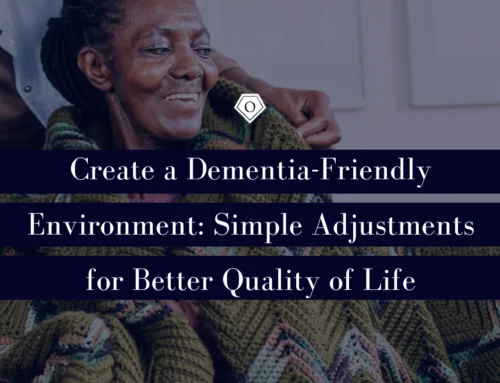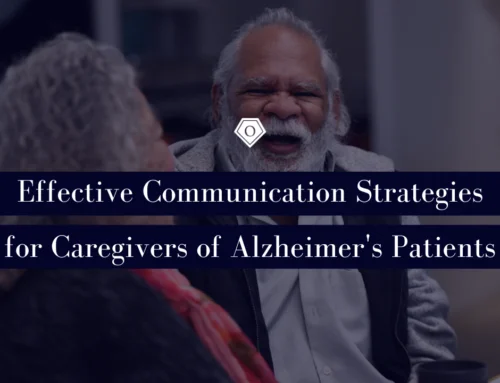Staying strong as a caregiver can feel impossible. Whether you are a full time or part time caregiver, the process is both physically and emotionally draining.
Practicing social distancing is making it harder for caregivers to bring in outside support from family or friends. We gathered tips from different caregivers and put together the top ten ideas for you to consider while riding out the Covid19 crisis.
1) Join an Online Caregiver Support Group
Caregiver support groups can offer you affirmation, encouragement, and tools for managing the caregiver/family relationship. Facebook and care.com have many online support groups.
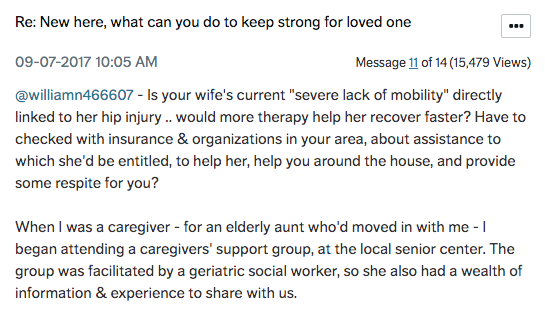
AARP Forum Submission
2) Take One-Two Hours For Yourself
While this may be impossible, consider taking a long bath when your loved one is asleep or choose to actively do something for yourself if they nap during the day. Be intentional throughout your day to find small ways to refuel your tank. If you can and if it is safe, give the senior you are caring for their personal space for an hour. It can be as simple as watching TV in different rooms so you can watch your shows. Carve out time for yourself. It will also allow your senior to feel (safely) independent.
3) Listen To Your Body
Too often, caregivers experience exhaustion and even dehydration! Remember that your nutrition, exercise, and medical needs are equally important. Using a health app to track your water intake is a simple way to remind yourself to drink enough water throughout the day.
4) Stay Connected with The Outside World
Create a social media account or make social activities part of your caregiving routine! While you can’t go out to socialize, you can make family video chats part of your day. Staying connected with the outside world is essential for caregivers and patients.
5) Take Responsibility For Your Own Care
Taking responsibility for your care starts by not missing doctor’s appointments, maintaining an exercise routine, and prioritizing mental health.

AARP Forum Submission
6) Manage Stress
Take steps to reduce your stress level and recognize early signs or triggers. When you are feeling overwhelmed, use the stop-drop-breathe method. Stop what you are doing, drop your agenda/to-do/activity, and take a moment to breathe.
7) Seek Solutions
When you are at a standstill, go to a professional for answers, consult your regular physician, support group, or home care professionals to help you navigate tricky waters. You don’t have to have all the answers. Right now, therapists are offering phone and Skype sessions. Some doctors also offer Telehealth. We are providing courtesy calls from a Registered Nurse, call (386) 676-1118.
8) Communicate Constructively
Communicating with a loved one that is struggling with pain, dementia, Alzheimer’s, or physical limitation frustrations can be difficult.
Think of these tips when you’re struggling with a conversation:
- don’t infantilize the person
- use their names and preferred titles
- consider using gentle touch to get their attention
- don’t use slang or figures of speech
- don’t ignore the person
- position yourself at their level
- avoid interrogating
- smile and make eye contact
Remember, correcting someone with dementia, or Alzheimer’s will not help them remember. Instead of bringing the error to their attention, listen, and ask to follow up questions to understand their needs better.
9) Ask For and Accept Help
Many caregivers have a routine and process that can be difficult to hand over to someone else. However, getting help goes a long way in achieving a balance that is beneficial for both caregiver and patient. While you may not be able to bring in outside help or family members during the Covid19 crisis, you can get tips from online support groups, utilize Telehealth, and call a friend or therapist for personal emotional support.
10) Exercise
You don’t have to overthink exercise. Even walking the dog at night can do wonders for your physical and mental health.
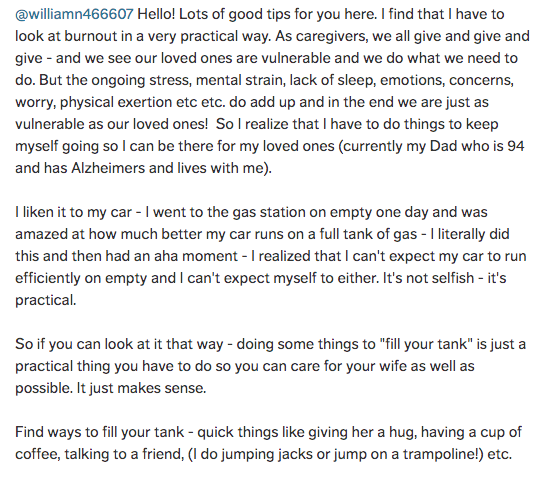
AARP Forum Submission
At the end of the day, your caregiving process must be sustainable. You’ve got this.

